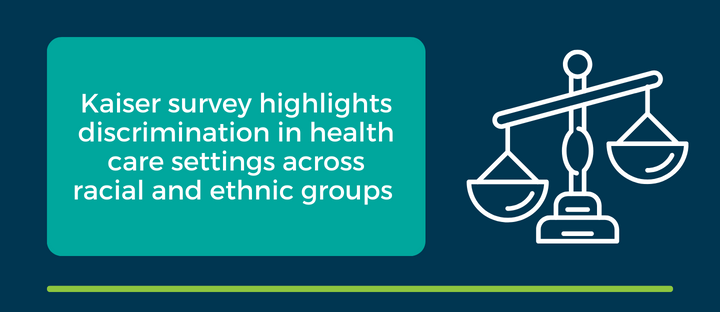On December 5th, KFF posted a press release about their recently published 2023 Racism, Discrimination and Health Survey. The survey, a large, nationally representative sample of over 6,000 responses illustrates the experiences of racism and discrimination across racial and ethnic groups. The survey explores experiences related to economic circumstances, interactions with police, discrimination in daily life and accessing medical care, and overall impact of these experiences on health and well-being.
A key takeaway from the report highlights ongoing residential segregation patterns that impact people of color, resulting in their feeling less safe in their homes and neighborhoods and experiencing higher rates of police violence compared to White adults. In fact, “[a]t least half of AIAN, Black, and Hispanic adults and about four in ten Asian adults say they have experienced at least one type of discrimination in daily life at least a few times in the past year, and they are more likely to say these experiences were due to their race or ethnicity compared to their White counterparts,” (Kaiser survey findings).
We know that racism and systemic oppression traumatizes our communities and impacts the well-being of us all. In order to achieve health equity and dismantle systemic oppression, we must work together to change the conditions that make it possible for oppression and trauma to persist in our communities.
The survey also highlighted that people of color face discrimination in health care settings related to their appearance. Among survey respondents who used health care in the past three years, six-in-10 (60%) Black adults, about half of American Indian and Alaska Native (52%) and Hispanic (51%) adults, and four-in-10 (42%) Asian adults reported preparing for possible insults by health care providers and/or feeling pressure to take care of their appearance in order to be “treated fairly during health care visits at least some of the time”.
We know that barriers to accessing care dramatically impact the health and well-being of individuals in our communities. Missing appointments due to fears of discrimination or rude behavior prevents folx from seeking life-saving and necessary health care.
Check out our policy tracker for the pieces of legislation we’re monitoring this session that impact health equity and the health care workforce.

